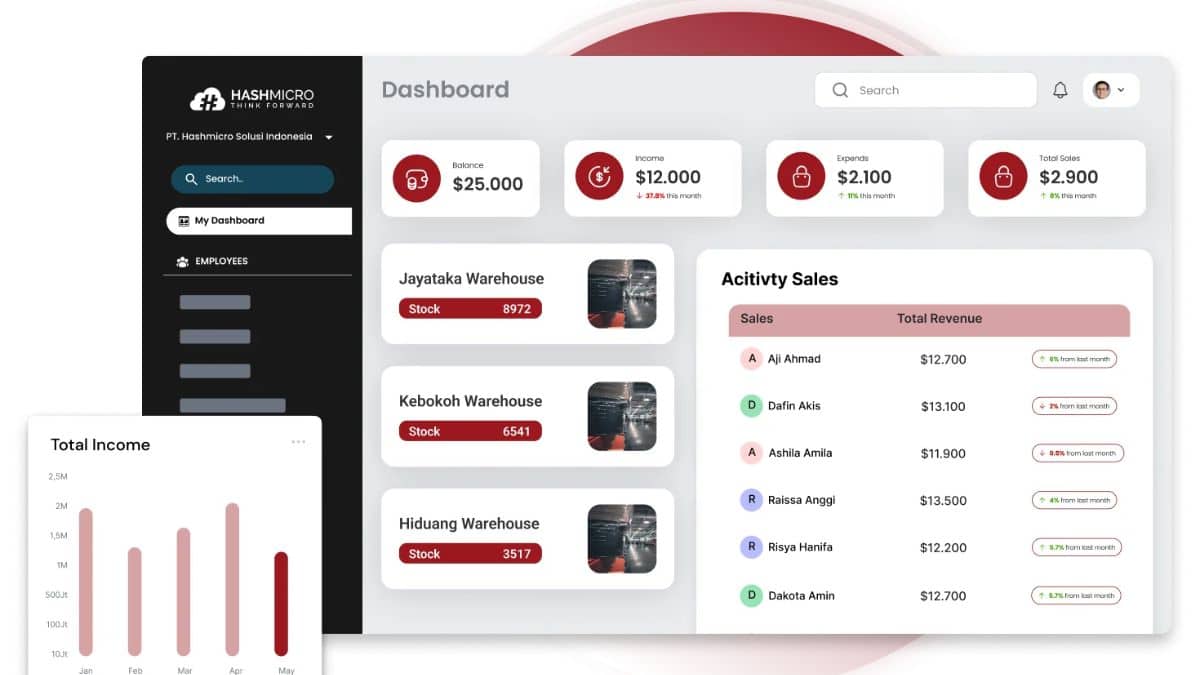The value of AI comes from rewiring how companies run. A recent McKinsey survey revealed that, out of 25 attributes tested for organizations of all sizes, the redesign of workflows had the biggest effect on an organization’s ability to see EBIT (Earnings Before Interest and Taxes) impact from its use of generative AI.
As businesses strive to improve efficiency, adopting AI in workflow automation becomes crucial. With AI in workflow automation, repetitive tasks can be automated, reducing errors and saving valuable time for more strategic initiatives.
Despite the clear benefits, many organizations still struggle to harness the full potential of AI in workflow automation. In this article, we will explore how AI in workflow automation can help streamline processes, enhance productivity, and drive smarter decision-making.
Keep reading to learn how AI in workflow automation can transform your business operations and help you stay competitive in today’s fast-paced market.
Key Takeaways
|
Table of Content
Content Lists
What is AI Workflow Automation?
AI in workflow automation refers to the integration of artificial intelligence technologies into routine business processes to enhance efficiency, accuracy, and adaptability. Unlike traditional automation, which follows fixed rules, AI-powered systems learn from data, adapt over time, and make intelligent decisions.
These systems can handle complex tasks like interpreting text, predicting outcomes, and interacting with users in natural language. For example, AI can route customer support tickets based on sentiment analysis or generate reports from unstructured data without manual input.
This approach not only reduces human intervention in repetitive tasks but also improves the overall quality of workflow management. By making workflows smarter and more dynamic, businesses gain real-time insights and can respond quickly to operational changes.
AI-powered automation is especially valuable in departments like HR, finance, and operations, and it becomes even more powerful when integrated with ERP software that centralizes business data and workflows.
Components of AI Workflow Automation


Implementing AI workflow automation involves several key components:
- Application Programming Interfaces (APIs): APIs enable different software applications to communicate and exchange data seamlessly, facilitating the integration of AI tools into existing systems.
- Business Process Automation (BPA): BPA utilizes software to automate complex business processes, such as order processing and customer account management, reducing the need for manual intervention.
- Machine Learning (ML): ML algorithms analyze data to learn from patterns, enabling systems to make data-driven decisions and predictions, thereby enhancing the automation process.
- Natural Language Processing (NLP): NLP allows machines to understand and interpret human language, facilitating the automation of tasks like customer inquiries and data extraction from text documents.
- Optical Character Recognition (OCR): OCR technology converts different types of documents, such as scanned paper documents or PDFs, into editable and searchable data, aiding in automating data entry processes.
AI Workflow Automation Tools
When it comes to implementing AI Workflow Automation, the right tools are essential. Some of the top AI workflow automation tools include:
- Robotic Process Automation (RPA): RPA tools automate repetitive tasks by mimicking human actions, such as data entry and transaction processing, improving speed and accuracy.
- Intelligent Document Processing (IDP): IDP solutions use AI to extract and process data from various document types, reducing manual data entry and associated errors.
- AI-powered chatbots: These chatbots handle customer inquiries, provide support, and gather information, enhancing customer service efficiency.
- HashMicro: A powerful tool designed to simplify business process automation with AI-driven features to automate workflows efficiently.
- Process mining tools: These tools analyze business processes to identify inefficiencies and recommend optimization strategies, enabling continuous improvement.
Benefits of AI Workflow Automation

AI for Workflow Automation is transforming how businesses operate, offering a range of benefits that make processes faster, smarter, and more efficient. Let’s explore these advantages in detail:
1. Increased Efficiency
Through an automated workflow with AI, repetitive processes like invoice handling and report generation are completed in seconds. This speeds up operations, reduces delays, and allows employees to concentrate on innovation and growth with the help of workflow automation solutions.
2. Cost Reduction
AI-based task automation helps businesses cut costs by minimizing manual effort and maximizing resource allocation. Especially when paired with Cloud ERP, teams can streamline operations while keeping overhead low.
3. Increased Accuracy
AI-powered business process management software ensures precise and error-free task execution. By eliminating human error, businesses achieve higher data reliability and better decision-making. This results in increased customer satisfaction and smoother operations.
4. Improve the Customer Experience
Businesses using AI in workflow automation benefit from responsive AI tools like chatbots that resolve inquiries instantly. This elevates customer satisfaction while freeing up staff to focus on complex service issues.
5. Scalability
As your company grows, AI in workflow automation ensures operations remain efficient. Information flows seamlessly across systems, making it easier to scale processes without increasing complexity.
Challenges of AI for Workflow Automation
While AI in workflow automation brings powerful advantages, it also presents a few hurdles that businesses should anticipate and address strategically.
- Integration complexity
Incorporating AI automation tools into existing infrastructure isn’t always straightforward. It often demands technical planning and expert support to prevent workflow disruptions and ensure smooth deployment.
- Data quality
The success of intelligent process automation depends heavily on clean, structured data. When data is incomplete or disorganized, AI models may produce unreliable outcomes. Businesses must prioritize data cleansing to unlock AI’s full potential.
- Employee resistance
Teams may feel uncertain about AI replacing jobs or changing their routines. Without proper communication and training, this hesitation can slow adoption. Helping employees understand how AI-based task automation simplifies their work can ease concerns.
- Cost of implementation
Launching an AI in workflow automation initiative requires upfront investment. For many small businesses, initial expenses can seem daunting. However, long-term efficiency gains often outweigh the costs—especially with flexible software pricing options tailored for scalability.
The right software solution can also offer flexible pricing plans, so businesses can take advantage of advanced features without breaking the budget. Click the banner below to explore pricing scheme and find the right AI workflow automation tools tailored to your business needs.
AI Workflow Automation Use Cases
AI in workflow automation is transforming how industries manage everyday operations. From reducing manual tasks to enhancing decision-making, its impact is wide-reaching and practical.
- Healthcare
In healthcare, AI workflow automation tools are streamlining patient record management and appointment scheduling. This not only saves time for medical staff but also improves patient care by reducing wait times and ensuring accurate records.
- Finance
The finance sector is using AI to automate tasks like invoice processing and fraud detection. By handling these repetitive tasks, Business Process Automation allows financial teams to focus on strategic decisions, making operations faster and more secure.
- Retail
Retailers are leveraging AI to enhance inventory management and customer service. From predicting stock needs to powering chatbots for instant customer support, AI for Workflow Automation is helping businesses deliver a smoother shopping experience.
- Human resources
HR departments are automating onboarding processes and employee inquiries with AI. This not only boosts efficiency but also ensures employees feel supported, all while freeing up HR teams to tackle more complex tasks.
- Sales operations
Sales teams are benefiting from automated data entry and CRM updates. By letting AI handle the admin work, sales reps can focus on what they do best, building relationships and closing deals.
- IT management
IT departments are using AI to automate routine tasks like password resets and software provisioning. This reduces the workload on IT staff and ensures faster response times, keeping the entire organization running smoothly.
- Customer service
Businesses can leverage AI workflows to streamline customer management, from onboarding new clients and providing purchase details to handling incoming service inquiries. This automation allows customer service representatives to focus on more complex issues, enhancing overall support quality.
Ready to Take Advantage of AI Workflow Automation? Check Out HashMicro

If you’re exploring AI in workflow automation, HashMicro’s Hashy provides a scalable solution tailored to your industry needs. Designed to simplify daily operations, Hashy automates complex workflows and empowers businesses with actionable insights—all through an intuitive interface.
Key Features of Hashy for AI Workflow Automation:
- Automate Mundane Tasks
Hashy takes over routine tasks like leave applications, expense approvals, and inventory management. For example, employees can easily apply for leaves or check leave balances, while managers can review and approve requests in real-time. This eliminates bottlenecks and ensures smooth operations.
- Real-Time Monitoring and Insights
Hashy acts as an analyst, providing key insights into business processes. It monitors activities in real time, such as inventory levels or sales performance, and sends notifications for low stock or expiring items. This helps businesses make data-driven decisions quickly.
- Simplified Actions and Reminders
Hashy simplifies complex workflows by breaking them into actionable steps. It reminds users of key activities, such as following up on invoices or approving purchase requests, ensuring nothing falls through the cracks.
- AI-Powered Assistance Across Departments:
- HR: Automates leave and attendance management, expense applications, and travel requests.
- Finance: Streamlines invoice creation, payables, and financial reporting.
- Operations: Manages inventory, procurement, and stock reordering.
- Sales: Enhances sales activities, from creating quotes to analyzing performance.
Hashy makes AI in workflow automation more than a productivity tool, it’s a smart assistant that streamlines your ecosystem and enhances business responsiveness in a competitive environment.
Conclusion
AI in workflow automation helps businesses streamline operations by automating repetitive tasks, enhancing decision-making, and improving accuracy. It supports scalability and improves collaboration across departments, making it essential for modern business efficiency.
HashMicro’s Hashy system simplifies automation by offering real-time monitoring, smart task reminders, and cross-department support. With features designed for HR, finance, operations, and sales, it enables faster processes and reduces manual workload at every level.
Want to see how AI in workflow automation can improve your business operations? Book a free demo with HashMicro today and experience smarter, faster, and more efficient workflows tailored to your needs.
FAQ About AI in Workflow Automation
-
What is AI process automation?
AI process automation is the use of artificial intelligence to automate business tasks, increase efficiency, and reduce manual work.
-
What are the 4 stages of an AI workflow?
“- Data Collection & Preprocessing: Collecting and cleaning data.
– Model Training & Development: Train the AI with the available data.
– Model Deployment & Integration: Implementing AI into the system.
– Monitoring & Optimization: Monitoring and improving AI performance.” -
What are examples of AI workflow automation?
“-Chatbot for customer service.
-AI for invoice processing and fraud detection.
-Stock automation in e-commerce.
-HR AI for recruitment and onboarding.
-Health data analytics in hospitals.” -
How to build AI workflows?
“-Determine the process to be automated.
-Collect and prepare data.
-Choose the right AI tool.
-Train, test, and integrate AI into the system.
-Monitor and improve regularly.”






































